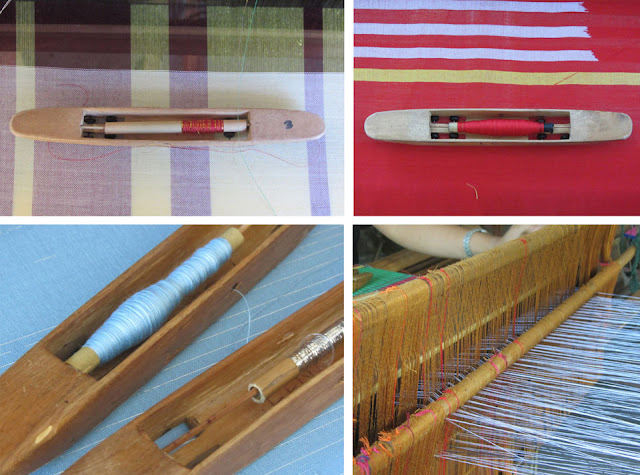No human problem that the imagination cannot solve
An Ilonggo councilor has
highlighted the need to get out of the mindset that the government is the only
entity that offers solutions to the country’s pressing problems.
To drive home the point, Iloilo
City Councilor Jason Gonzales shared five
stories of creativity to participants of the Liwanag Worldfest 2014, a
three-day conference on creating a solution ecosystem around disaster last
March.
POTHOLES
“In the United States and
the Philippines, street potholes are a problem. The process of identifying
where they are and filling them up is expensive because you need to get a team
of engineers and some people to go around the city and identify where these
potholes are,” he said.
 |
| Councilor Jason Gonzales of Iloilo City |
However, in Boston, United
States, the New Urban Mechanics under the Office of the Boston Mayor, created the
“Help Keep Your Street Smooth” project, which makes use of a mobile app called
Street Bump.
“Street Bump can be
downloaded by anyone. When you go around, you identify the potholes through the
app and send the report real-time to the government. In just a few weeks, they
are able to identify the bumps on the road,” Gonzales said.
“You can help your city in
a very simple way. This is micro-volunteerism,” he added.
RECYCLING
Gonzales shared that there
have been so many garbage recycling campaigns -- not using plastic on a
particular day or waste segregation – but these have failed. For example,
segregation at home has failed because when the garbage trucks come, they still
put the garbage together.
He said that the city
council can pass legislation, which mandates people to recycle if they don’t
want to be penalized. “That would cost money and would be difficult to
implement,” he said.
But, in the United States,
a project called Recyclebank has raised the recycling rate of its residents
without the government doing anything, he said.
“Recycling starts in the
household. Out of the amount of trash you recycle, you earn points. You will
then trade those points for groceries or discounts,” Gonzales said.
LOWERING HEALTH CARE COSTS
Sometimes, there are
wounds that do not need personal attention from the hospital. However, since
patients do not know what to do, they go to the hospital and then incur
unnecessary expenses.
Gonzales shared that Blue
Cross Nursing Hotline in the United States, is one creative and sustainable
health initiative.
“It is a 24-hour hotline
where you can call whenever you have a medical condition. You tell them your symptoms, take a picture of
your condition and send it to them. Then, they will tell you if you need to go
to the hospital or not,” Gonzales said.
SANITARY TOILETS
“The toilet today is a
modern-day convenience. You sit on it, you wipe your ass and you flush. But for
all its celebrated glory, today it does not make sense especially for third
world countries because it costs so much to maintain because you need running
water,” Gonzales said.
“More than 2.5 billion households
all over the world do not have access to sanitary toilets. Many die due to sanitation-related
ailments such as diarrhea. Here in Iloilo, 54 percent do not have toilets. Iloilo
Province spent P5 million to build toilets. But what is a country supposed to
do if it has no money?”
Gonzales said that the Bill
and Melinda Gates Foundation had put up “Reinvent the Toilet Challenge”, a
contest on designing a toilet. “They got people to do it. They asked everyone
all over the world to make a design and the winner is an Israeli company and
the prize is $110,000,” Gonzales said.
“Instead of having experts
to think of solutions, they asked people to do it. So, they spent less,”
Gonzales said.
TRAFFIC
On the issue of traffic,
Gonzales said that conventional wisdom says that we need to build more roads in
order to solve traffic problems. “It does not work,” he said.
Gonzales said Zimride, the
largest carpooling program in the United States, has successfully connected drivers
and passengers through social networking.
The carpooling community
was started by Logan Green who shared rides with other people and by John
Zimmer was inspired by the empty seats he saw when he was commuting. Zimmer
thought that with carpooling, people can save money and reduce their carbon
footprints.
CREATING SOLUTIONS
To guide individuals and
groups in creating solutions to the country’s pressing problems, Gonzales provided
these guide questions:
(1) What is the problem?
Think of a societal problem in your area, something pressing. It can be small but urgent. (2) What are the
possible solutions? (3) What are the key processes behind the solution? (4) Who
can do them best? (5) What can we do differently? (5) What new currencies can you
trade?
THE ICCC STUDENTS’ EXPERIENCE
To cite an example, Gonzales
shared the Iloilo City Community College students’ experience. The ICCC students come
from poor families. While their tuition fees are subsidized by the government
and by private individuals, the challenge is: do they have enough money for
transportation to school?
Gonzales said, to address
this, jeepney drivers’ associations agreed to provide the ICCC students with
free ride to and from school, provided they wear their school ID.
Based on the guide
questions, the problem is the students’ transportation; possible solutions –
finding sponsors; key processes – riding the jeepney from one point to
another; who can do them best - drivers; what can we do differently – free
rides; and what new currencies can you trade – not money but the “feel good”
experience of the driver that he was able to sponsor a student. However, in creating
solutions, teams should assume that everyone is helpful and is willing to help,
Gonzales said.
With this, Gonzales
assured, “There is no human problem that the imagination cannot solve.”/




